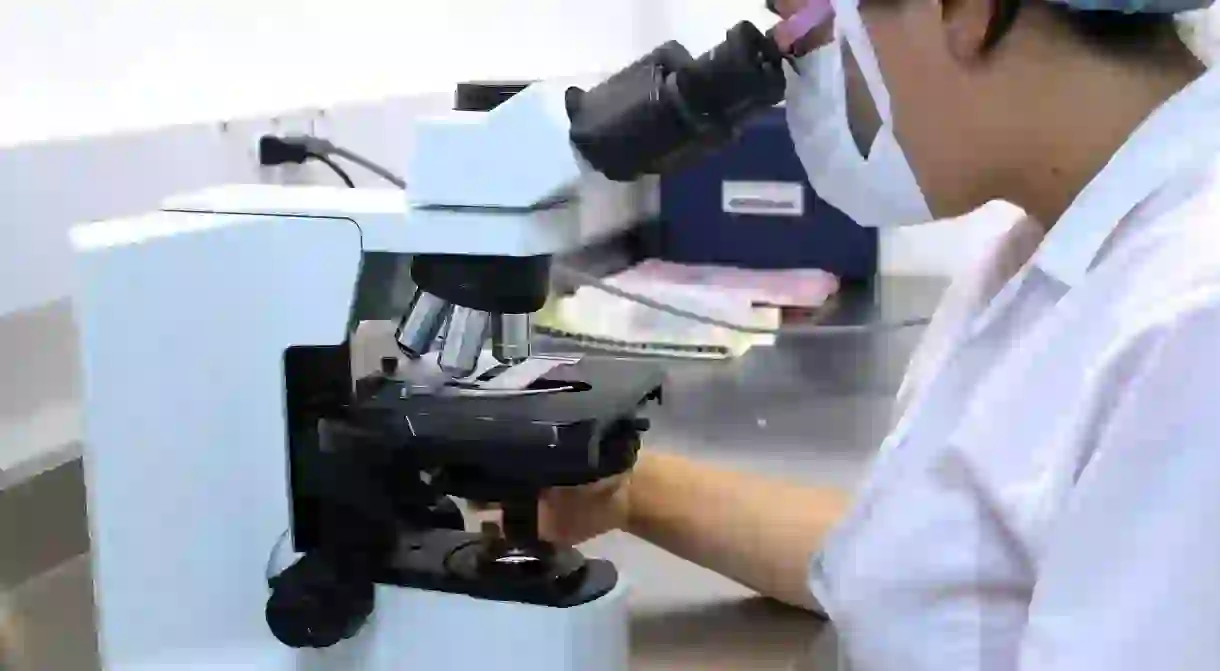Why China's Lab-Grown Meat Is a Win for Vegans

China has signed a US$300 million deal with three Israeli companies who produce laboratory-grown meat. The deal could significantly reduce the need for animal slaughter and cut down on harmful emissions and pollution.
Is laboratory-grown meat the future of meat consumption? China seems to think so after signing a deal worth US$300 million with three Israeli lab-grown meat producers in a bid to combat animal welfare concerns and reduce harmful emissions.
But what exactly is lab-grown meat? Uma Valeti, CEO of Memphis Meats, which last year created the world’s first lab-grown meatball, told The Guardian: “The process involves taking tiny meat cells from an animal (via a painless biopsy or sample). These are then fed nutrients, which enables the cells to grow, and they eventually turn into edible meat.”
Essentially, this enables meat to be grown in a lab using animal cells which will ultimately eliminate the need to slaughter animals or engage in any kind of animal cruelty. A big win for vegans.

“Our goal is to entirely remove the animal from the meat production process,” Valeti told The Guardian.
China isn’t usually a leader when it comes to animal or environmental issues, so the news of its investment in lab-grown meat has been particularly welcomed by animal rights groups. Many have hailed the news as an exciting development and a promising alternative to massive animal slaughter in the meat industry.
“A colossal market opportunity,” is how China’s lab-meat investment was described by Bruce Friedrich, head of the Good Food Institute (GFI), an organisation that promotes meat alternatives.

“This could put [lab-made] meat onto the radar of Chinese officials who have the capacity to steer billions of dollars into this technology,” he adds.
The Chinese market is huge. According to the International Trade Centre, China imported meat worth more than £10 billion in 2016. China already gets through twice as much meat as the United States per year. By 2030, it’s expected to be triple. However, last year China launched a nationwide campaign to cut Chinese meat consumption by half.
Furthermore, the new deal with three Israeli lab-meat producers: SuperMeat, Future Meat Technologies and Meat the Future, could see China lead the way on reducing the need for mass animal slaughter.
Additionally, the deal could also play a major role in helping towards reducing greenhouse gases.
Globally, livestock raising is responsible for 14.5% of all greenhouse gas pollution – more than from the entire transport sector. Livestock herds produce methane gas, which is 21 times more likely to increase global warming than carbon dioxide. Meanwhile, land clearing and fertilisers used for livestock grazing produce large quantities of carbon.
“Through this kind of lifestyle change, it is expected that the livestock industry will transform and carbon emissions will be reduced,” said Li Junfeng, director general of China’s National Center on Climate Change Strategy and International Cooperation.

According to The Times of Israel, last week the China Science and Technology Daily newspaper ran an article (in Chinese) advocating lab-produced meat as a safe and environmentally more acceptable way of eating meat.
“You have two identical products, one for which you have to slaughter the cattle to get,” the article said. “‘The other is exactly the same, and cheaper, no greenhouse gas emissions, no animal slaughter. Which one would you choose?”

Lab-grown meat made the headlines last year after San Francisco-based startup, Memphis Meats, produced the world’s first lab-grown meatball. Similarly, in 2013, a company from the Netherlands called Mosa Meat introduced the world’s first lab-grown burger. Several similar start-ups are looking to produce alternative products for beef, chicken, and pork.
Ryan Bethencourt, co-founder of IndieBio, a lab-meat startup, told The Guardian, “We want to completely redefine food production, reducing the environmental impact and ending cruelty to animals. The aim is to ensure that people keep eating what they love, but to produce it in a way so it’s not damaging the planet.”













